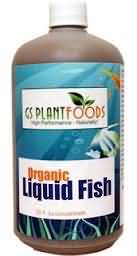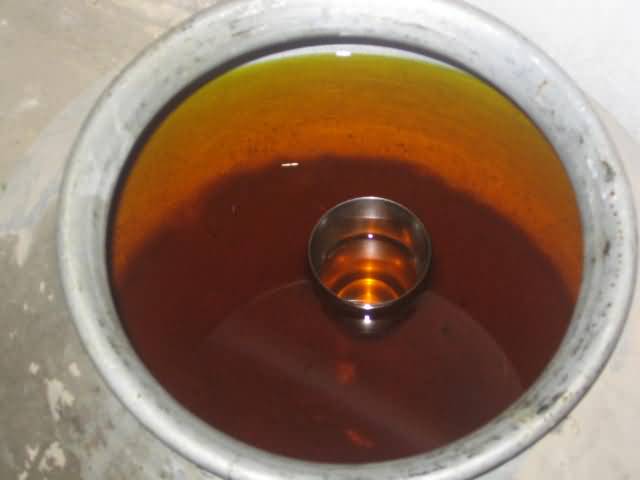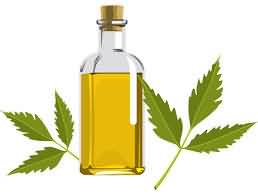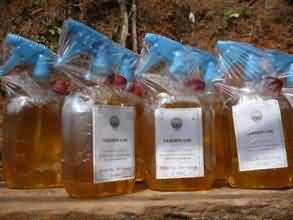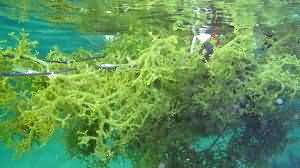मृदा पोषण में तरल जैविक खाद की भूमिका
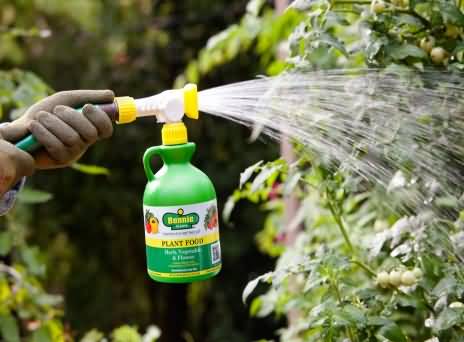 Manures are organic materials with plant nutrients in small concentrations. Organic manures are the main source of replenishing soil fertility.
Manures are organic materials with plant nutrients in small concentrations. Organic manures are the main source of replenishing soil fertility.
Organic farming is an internationally regulated legally enforced and standardized alternative paradigm relies on ecological processes, biodiversity for sustaining the health of soil.
Solid organic fertilizer, cattle manure and green manure are the most nutritive organic fertilizers with an average nitrogen (N) content of 1.5%.
Now a days Liquid Organic Manure has largely remained in background of bio-dynamic farming. The plant can absorb nutrients about 20 times fast through the leaves than applied through the soil.
Therefore, liquid manures are helpful to overcome temporary nutrient shortages.
In organic farming it is mainly used to stimulate growth during the season when nutrient uptake through the roots is hindered.
Liquid manure is from farmyard manure or plant material (plant teas or slurry). Nutrient rich material is soaked in water for several days or weeks to undergo fermentation.
Frequent stirring encourages microbial activity in liquid manures. The resulting liquid can either be used as a foliar fertilizer or applied to the soil.
Types of Liquid Organic Manures
1. Panchagavya
In India traditional liquid fertilizer called Panchagavya, a manure tea made by fermenting cow dung, cow urine, milk, curd and ghee in water have a modest NPK content of 0.03 - 0.02 - 0.04 % but a high iron content of 0.84%.
It acts as a tonic to soil and crops. Panchagavya solution can be mixed with irrigation water at the rate of 20 liter/acre either through surface irrigation or drip irrigation systems.
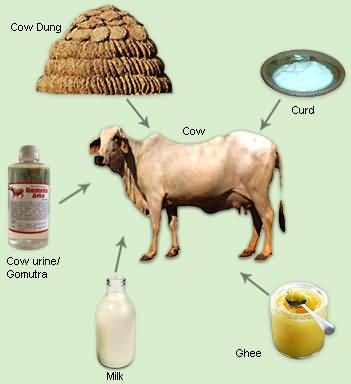
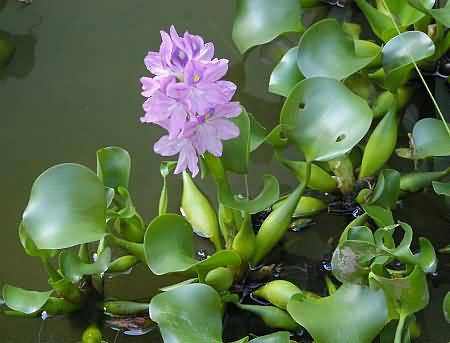 2. Water Hyacinth (Eichhornia Crassipes) –
2. Water Hyacinth (Eichhornia Crassipes) –
It is the liquid manure which had the highest N content (3.72%) after 30 days of fermentation. Water Hyacinth is known to have high protein content.
In organic agriculture 6.2 % protein content is equivalent to 1% nitrogen content. Water Hyacinth leaves may contain as highest 15.17% protein, which yields more than 2% nitrogen. During composition of liquid manure better source of phosphorus due to the acidic pH of 6.5.
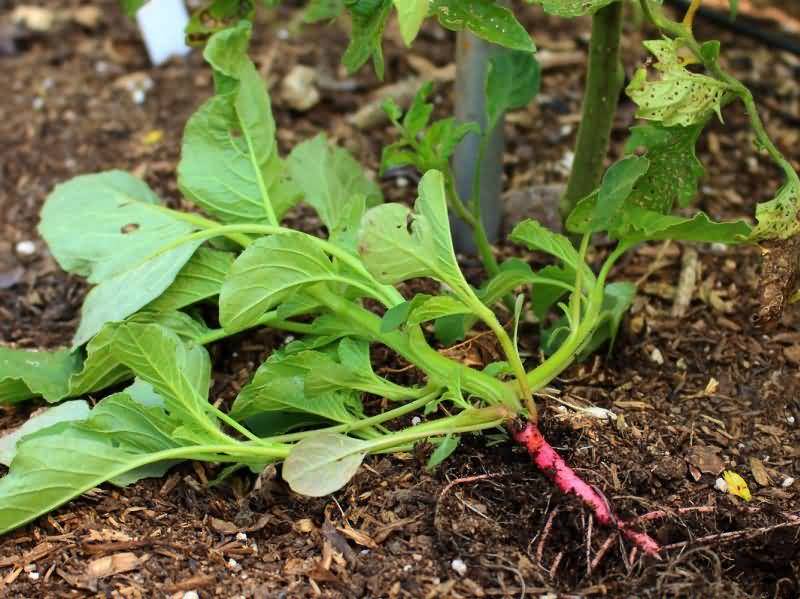 3. Pig weedred-root (Amaranthusretroflexus)
3. Pig weedred-root (Amaranthusretroflexus)
Liquid manure from pig weed red root that has high calcium content may inhibit phosphorus availability inplants. Pig weed liquid manure the best source of all trace elements.
The Pig weed liquid manure provides highest amount of Zinc, Calcium (0.38%),Magnesium (0.16%) with lowest sulphur content (0.7%) sufficient to meet plant requirements.
Liquid fish contains amino and fatty acids, essential vitamins and vast array of micro nutrients in a natural form which breakdown slowly, providing long term availability.
Natural Liquid Fish fertilizer manufactured from Advanced Marine technologies provides with improvement in plant colour, growth and overall health, as well as higher bricks of sugar for grapes.
Soil qualities are improved for deeper rooting and better penetration of water and nutrients unproductive soils are easily rebuilt and replenished.
Cow urine has more than 24 different nutrients that are vital for plant growth. It is used as pesticides for crop compared with artificial fertilizer.
6. Biodigesters
It is the waterproof containers made using bricks and cement toferment the biomass that are available in the farm. Making liquid manure fromweeds and other plants available in the field provides a cheap and effectiveway of increasing and maintaining garden fertility and capturing minerals fromdeep within soil.
The solution produced after the fermentation in a biodigesterused to provide nutrients to crops by foliar sprays, to protect crops from pests and diseaseshelp to avoid the use of synthetic chemicals like fertilizers andpesticides.
Neem oil is a good insect repellent and anti-feedant. It is effective on variety of crops.
8. Dung Brew
It is a fermented solution of cow dung and provides nutrition to the crops.
9. Compost Tea
It is a simple and effective preparation to enhance crop health. The effectiveness of compost tea depends on the quality of compost. compost tea is very effective againstmany pests and disease
Vermiwash is the coelomic fluid of earth worms. It contains anti-fungal, anti-bacterial and growth promoting substances.Foliar spray ofVermiwashprovides the plant with vital nutrients but helps to control plant disease.
11. Sea weed extract
Application of sea weed liquid fertilizer to crops has found to increase seed germination percentage, yield of crops, resistance to frost and fungal attacks and uptake of the organic nutrients from the soil. Seaweed liquid fertilizers are commercially available in several trade names such as Algit, Algifert, Kalpak66, Maxicrop.
12. Liquid Bone meal
It contains calcium, which can improves soil tilth and cation exchange capacity (CEC), and is useful in correcting calcium deficiencies.Liquid Bone meal promotes early plant growth and development, leading to high-quality flowers, fruits, roots and field crops.LiquidBone meal is the ideal product for seeking a natural fertilizer that gives superior results.
Advantages of liquid organic manures
- Act as tonic or stimulant to plants
- It is used as insecticide and fungicide
- Improves the nutrient assimilation
Conclusion-
Application of organic manures cannot full fill the nutrient requirement of crops. Therefore, for additional supply of nutrients. There is a need to develop enriched liquid organic manure which can supply adequate nutrients as well as have insecticidal/ fungicidal property.
Liquid organic manure has long shelf life,easy to disperse in water and it is rapidly up taken by plants compared to soild organic fertilizer.
Authorus:
1K.Jeevika, 2A.G.Rajalakshmi and 3A.Karmel reetha
1&3Assistant Professor, 2 Senior Research Fellow
Vanavarayar Institute of Agriculture,Manakadavu, Pollachi - 642103
Email:

